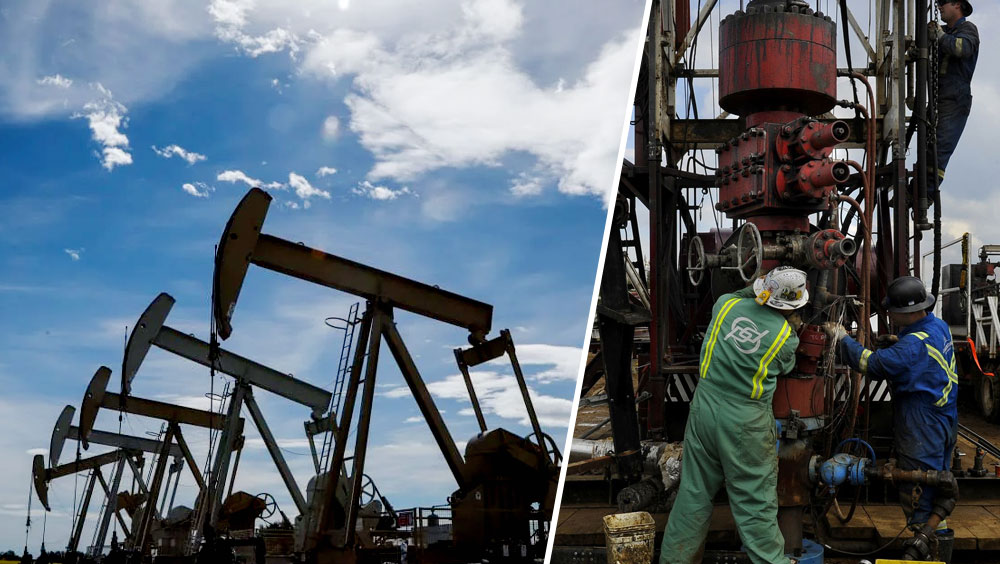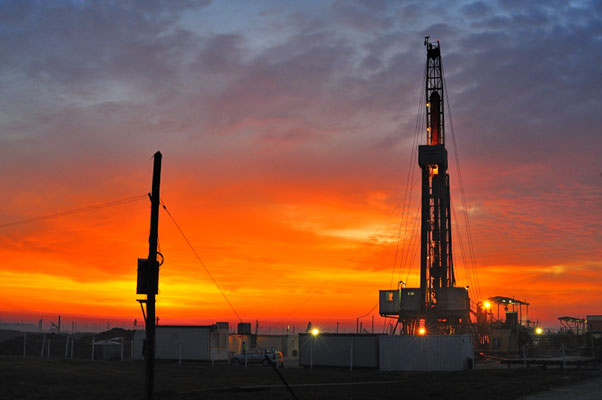
Have you ever considered investing in oil wells as a way to generate wealth? With the volatile nature of the stock market, many investors are turning to alternative investment options to diversify their portfolios.
Oil is a finite resource, and as demand continues to increase, so does the value of oil wells. Investing in oil wells can offer potentially high returns, long-term income, and tax benefits.
Many products and services in the oil industry can profit from fluctuations in price, including diesel gasoline, crude oil, natural gas, and other commodities. However, before you jump into investing in the oil and gas industry, there are important factors to consider and potential pitfalls to avoid.
In this article, we will explore the basics of investing in oil wells, including the risks and rewards, the different types of investments available, and the key considerations to keep in mind. By the end of this article, you will have a better understanding of whether investing in oil wells is the right choice for your financial goals.
Types of Oil Well Investments
Direct Participation Programs (DPPs), Limited Partnerships (LPs), and Royalty Trusts are three types of oil well investments.
Direct Participation Programs (DPPs)
Direct Participation Programs (DPPs) are a type of oil well investment that allows investors to directly participate in the exploration, development, and production of oil and gas wells. Typically, investors in DPPs will own a share of a particular well or a portfolio of wells, and they will receive a percentage of the profits from the sale of oil and gas produced from those wells.
One advantage of a DPP is that investors can enjoy tax benefits, such as the ability to deduct intangible drilling costs from their taxable income. However, DPPs also carry a high risk due to the uncertainties inherent in oil and gas exploration and production, and investors should carefully consider the potential risks and rewards before investing.
Limited Partnerships (LPs)
Limited Partnerships (LPs) are a type of oil well investment in which investors provide capital to a partnership that is responsible for the exploration and production of oil and gas wells. As an investor in an LP, you are a limited partner, meaning that you are not directly involved in the management of the venture.
The main advantage of an LP is that investors are shielded from personal liability for any losses incurred by the partnership. However, the limited partner’s return on investment is typically also limited, as they will only receive a percentage of the profits from the wells they’re invested in. Additionally, LP investors are typically required to remain invested in the partnership for the duration of the investment, which can range from several years to over a decade.

Royalty Trusts
Royalty Trusts are another type of oil well investment in which investors purchase a share of the revenue stream generated by the oil and gas produced from a particular set of wells. Typically, the royalty paid to investors is a percentage of the gross revenues generated by the wells, and investors are not directly involved in the management or operation of the wells.
One advantage of Royalty Trusts is that they provide a predictable income stream to investors over a defined period, which can be attractive to those seeking a more stable investment. However, the potential return on investment is often lower than other types of oil well investments, and investors should be aware of the risks of fluctuations in oil and gas prices.
Risks And Rewards Of Oil Well Investments
Oil well investments can be an attractive option for investors looking for high returns and portfolio diversification. But, as with any investment, there are risks involved. Here's what you need to know about the risks and rewards of oil well investments.
Risks
The Volatility of Oil Prices: One of the biggest risks associated with oil well investments is the volatility of oil prices. Oil prices can fluctuate wildly based on global economic conditions, political events, and supply and demand factors. A sudden drop in oil prices can significantly impact the profitability of an oil well investment, leading to financial losses for investors.
Operational Risks: Oil well investments come with inherent operational risks. These can include accidents, natural disasters, and equipment malfunctions that can lead to shutdowns or reduced production. These risks can impact the return on investment and lead to financial losses for investors.
Regulatory Risks: Oil well investments are subject to a range of regulatory requirements, including environmental regulations, safety regulations, and taxation laws. Changes in regulations or unexpected compliance costs can impact the profitability of an oil well investment.
Rewards
Potential for High Returns: Oil well investments have the potential for high returns that can outpace the returns of traditional investments. This is especially true in times of high oil prices when the profitability of an oil well investment can be significant.
Diversification of Investment Portfolio:Investing in oil wells can also offer portfolio diversification. This means that an oil well investment can act as a hedge against other types of investments that may be negatively impacted by market forces.

How To Invest In Oil Wells
Investing in oil wells can be a complex and risky endeavor, but here are some steps to follow to help you get started:
Research And Due Diligence:
Before investing in any oil well, it is important to conduct thorough research and due diligence to understand the geological characteristics of the well, the history of the operator, and the potential risks and rewards of the investment. This may involve reviewing geological reports, financial statements, and regulatory filings, as well as speaking with industry experts and other investors.
Selecting A Reputable Operator:
The success of an oil well investment is largely dependent on the expertise and experience of the operator. It is important to select an operator with a strong track record of success, a solid financial position, and a clear understanding of local geology and regulations. This may involve researching the operator's history, reviewing their financial statements and regulatory filings, and speaking with industry experts and other investors.
Understanding The Investment Terms And Structure:
Oil well investments can be structured in a variety of ways, including direct participation programs (DPPs), limited partnerships (LPs), and royalty trusts. Each structure has its own unique characteristics and potential risks and rewards, so it is important to carefully review the investment terms and structure before investing. This may involve reviewing the prospectus, speaking with a financial professional, and consulting with legal and tax advisors.

Conclusion
Investing in oil wells can be a lucrative opportunity for wealth generation. While there are risks involved, the potential returns can be significant. By understanding geology, technology, and market trends, investors can make informed decisions and find success in the industry. It is important to work with experienced professionals and conduct thorough research before making any investments. With the right strategy and approach, drilling into profits through oil well investments can be a viable option for those seeking to grow their wealth over the long term.
Frequently Asked Questions:
What Is The Minimum Investment Required For Oil Well Investments?
The minimum investment required for oil well investments can vary depending on the investment opportunity and the company offering it. Some companies may have a minimum investment of a few thousand dollars, while others may require hundreds of thousands or even millions of dollars. It is important to thoroughly research and understand the investment opportunity and associated risks before committing any funds.
How Long Do Oil Well Investments Typically Last?
Oil well investments typically last for several years, ranging from five to fifteen years, depending on various factors such as the efficiency of the well, the location, and the market demand for oil and gas. Investors need to have a long-term perspective when investing in oil and gas, as the returns may not be immediate and can be subject to fluctuations.
What Is The Typical Rate Of Return On Oil Well Investments?
The rate of return on oil well investments varies widely and is dependent on various factors such as location, extraction methods, and market conditions. Generally, a successful oil well investment can yield returns anywhere between 20% to 50%, while more high-risk investments can have higher returns but also carry a greater likelihood of failure. Ultimately, the rate of return on oil well investments can be highly unpredictable and subject to many external factors.
Are There Tax Benefits To Investing In Oil Wells?
There can be tax benefits to investing in oil and gas projects, such as deductions for intangible drilling costs and depletion allowances. However, it is important to consult with a tax professional to fully understand the tax implications of oil and gas investment. Additionally, investing in oil wells carries risks and uncertainties that should be carefully considered before investing.
How Can I Mitigate The Risks Of Oil Well Investments?
To mitigate the risks of oil well investments, it is essential to conduct thorough research on the investment, including the geological data of the oil field, the track record of the operator, and the project's financials. Working with experienced and reputable investment advisors or consultants who specialize in oil and gas investments can also help to minimize risks. Additionally, investors can diversify their portfolios by investing in multiple oil well projects instead of solely relying on one. Finally, it is essential to have a risk management plan in place and keep track of the investment's performance regularly.
